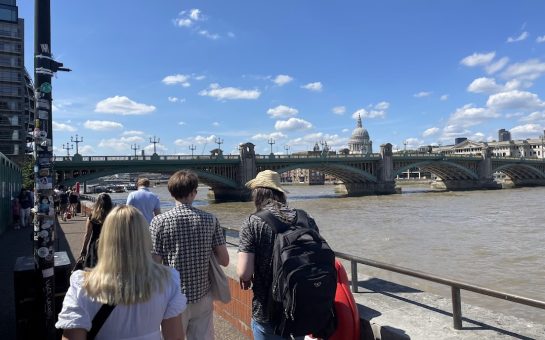Two new questions in the upcoming national census will give LGBTQ+ communities a voice for the first time in the survey’s history.
Next month’s census on 21 March includes a voluntary question on gender identity and one on sexual orientation for respondents aged 16 and over.
The once-a-decade survey is run by the Office for National Statistics (ONS) and collects vital information from households across England and Wales that is then used by local governments to help fund public services, such as transport and health, and provide community support.
Chris French, founder and chair of Lambeth Links, a new forum for the Lambeth LGBTQ+ community, said: “Having that sort of information is really groundbreaking in terms of being able to then provide the services that our community will need.
“Mental health services are needed as LGBTQ+ are disproportionately affected by these issues, so there’s going to be a need for that and always has been.”
Lambeth has the highest LGBTQ+ population in the UK, with an estimated 5.5% of the borough identifying as either gay, lesbian or bisexual according to ONS data between 2013-15.
French, 38, added: “There are a lot of things needed to be known about the Lambeth community and its breakdown.
“We need to ensure that the needs for this community are given to the right people like the NHS in Lambeth.”

The last census in 2011 showed ethnic Asian groups made up 7.5% of the population followed by ethnic Black groups at 3.3%.
Rob Berkeley, co-founder of BlackOut UK, a support network for Black gay, bisexual or trans men in the UK, said: “We know that from studies we did at Black Out last year, but also at the NHS and Government Equality Office, that the groups amongst the LGBTQ least likely to fill out a survey are Black and Asian men.”
“We’re at the stage with minority ethnic groups where they’re very suspicious of government interventions, and understandably want to be careful about allowing this data to circulate, particularly if they haven’t told their family.”
Rob, 46, observed that the problem with the census data will be when decisions are made about housing or how much money to give to the voluntary sector or sexual health services.
He said: “It’s quite a good way of saying no.
“So a group of Black and Asian bisexual or trans men could approach their local authority and say we live here and we want to do something about the community or housing and then be told the data says you’re not here.”
Beki Morgan, 32, who represents LGBT staff in a West London NHS Trust, commented: “Not all of us are lucky enough to have families who accept our sexuality or gender identity, and this can skew results.
“Those who interpret census data need to understand that sexuality and gender identity is a tricky subject for respondents and that all results should take into account under-reporting, i.e. be enjoyed with a large pinch of salt!”

She added: “Knowing the number of LGBTQ+ people in London can help us to demonstrate that our capital is a welcoming, diverse and multicultural hub.
“As the COVID-19 pandemic draws to a close, we’ll be able to reignite our local economy with LGBTQ+ tourism, and continue to drive cultural change towards a more egalitarian society.”
Although the gender identity and sexual orientation questions are only voluntary, Philip Baldwin, 34, a LGBTQ rights activist, urged LGBTQ people to participate in it if they feel comfortable doing so.
The Gay Times columnist said: I look forward to seeing the data from the census. As a community, it’s important that we are visible and it will enable LGBTQ people and our allies to better advocate for LGBTQ rights.
“The only downside is that as our society rapidly changes and social attitudes evolve, with the census only taking place once a decade, the data may become out of date quickly.
“We have to recognise that this will just provide a snapshot.”




